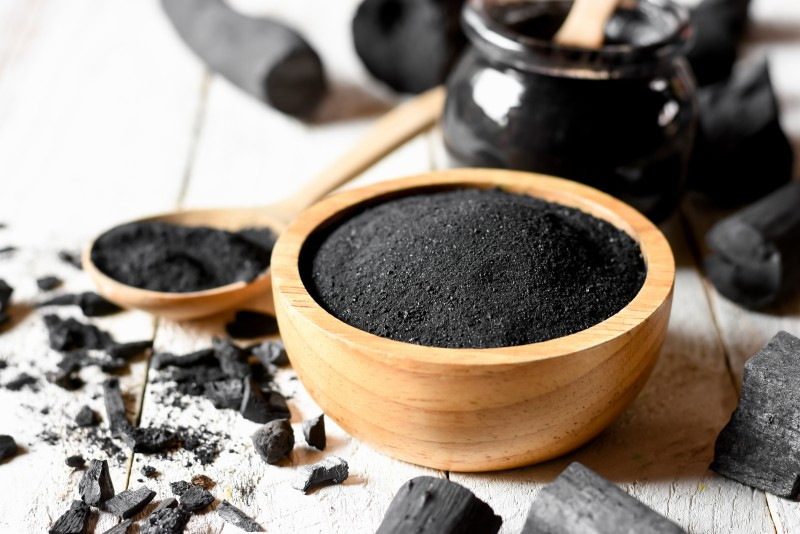Activated charcoal is a substance with unique properties. This ingestible form of charcoal can remove toxins that have been ingested orally. There are other unique, potential benefits to activated charcoal as well.
What Is Activated Charcoal?
The history of the
clinical use of charcoal dates back about 200 years. Per a benchmark clinical review of activated charcoal, it is renowned for its ability to remove toxins from the body, due to its adsorbent properties. As an adsorbent, activated charcoal causes toxins to coagulate on its surface. Its tiny granules and texture give it a wide surface area, making it able to bond to, and remove, a large amount of an ingested toxin(s).
Activated charcoal differs from other forms of charcoal. The clinical review referenced earlier explained how producing activated charcoal involves a three-step process. First, a natural carbon-containing material such as coal or wood pulp is made into pure carbon via chemical means; second, this carbon is ground into fine particles; finally, the ground carbon is activated by way of treatment with oxygen, CO2, and other chemicals.
Activated Charcoal for Toxin Removal
Activated charcoal is most renowned and studied for its ability to
remove toxins from the body. Activated charcoal has been used since the 19th century to treat cases of poisoning. Activated charcoal can remove diverse types of toxins, including prescription medications and over-the-counter drugs.
It is accepted that activated charcoal is most effective when consumed within the first hour after ingesting a toxin, especially within the first 5 minutes. For drugs that are slow-release or have a slow digestion, activated charcoal could be of help if taken within up to 4 hours after the toxin is ingested.
Activated charcoal can cause
many types of chemicals to bind to it, including most organic compounds, bleach, fertilizer, pesticides, and fertilizer.
Other Uses of Activated Charcoal
There are other potential uses of activated charcoal. While these may not be as effective and efficacious as in the case of toxin removal, they are worth your consideration:
Whitening teeth
Activated charcoal's ability to bind to other substances can help whiten your teeth. It can help
remove plaque and other tiny bits of orally ingested substance, which helps whiten teeth. Activated charcoal can help remove stains from coffee, wine, and more. A small amount of activated charcoal could be applied while brushing your teeth.
Kidney health
Activated charcoal
helps remove urea and other waste toxins, which the kidneys are responsible for removing. This can be of particular benefit to individuals with kidney disease.
Preventing gas
Activated charcoal can also be of help in
preventing excess gas buildup and bloating. Once again, this is because it is able to bind to certain substances in food, specifically those which produce gas during digestion.
Relieving diarrhea
At least one study has shown that activated charcoal is
able to reduce diarrhea.
To review, activated charcoal is a unique substance with the powerful ability to remove ingested toxins of many different kinds. It can also whiten teeth, benefit your kidneys, and prevent gas and bloating. Before trying activated charcoal, though, discuss its use with your healthcare provider about the benefits activated charcoal could have for you and your family members. And don't be shy about asking questions.

